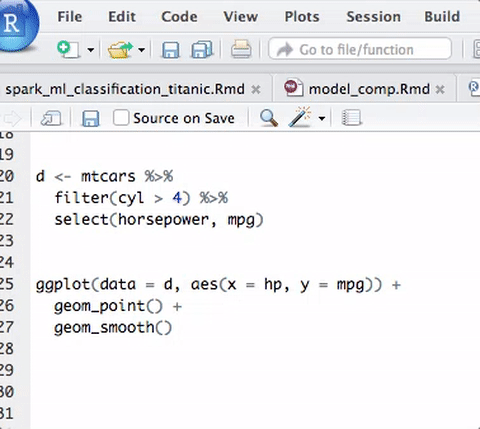Renaming Objects in RStudio context sensitive within entire Project
I have an issue when developing an R project using RStudio. I create an object, and then realise later, that I want to give it another name. I then have to manually change the name, which in larger projects is annoying and often results in errors, as I easily oversee one line. The replace all function of RStudio doesn't quite match the name I am trying to replace, as it only does so in one file, it also doesn't consider only the references of the variable see sample code:
f <- function(a){
b <- a
return(a+b)
}
a <- 5;
a <- a + f(1)
In that sample, I'd like to rename a only inside the function. I'd have to do that thrice, while replace all would mess up my code outside the function. I don't want to edit that a. I.e. Visual Studio has an option of renaming a variable using the hotkey: Ctrl + .. Then Visual Studio renames the variable and its references in the entire project, without editing equally named variables that don't have a reference to the edited one. I haven't been able to find an option like that in RStudio. Is there an equivalent?
Answer
RStudio IDE v1.0 includes a feature called "Rename in scope" that aims to do this:
This feature makes it easy to rename all instances of a variable. The tool is context aware; changing
mtom1won’t changemtcarstom1tcars.
I cannot find documentation for the feature. The example from the animated GIF works though when I place the cursor on the first instance of d (the variable name to replace), and then select Code -> Rename in Scope. However, when I try the same steps but starting from the second instance, it does not work. So apparently you need to start from the place where the variable is assigned?
## Example from animated GIF
library(dplyr)
library(magrittr)
library(ggplot2)
d <- mtcars %>% ## Instance 1
filter(cyl > 4) %>%
select(hp, mpg)
ggplot(data = d, aes(x=hp, y=mpg)) + ## Instance 2
geom_point() +
geom_smooth()
In practice, there still seem to be bugs that prevent the feature from working. For instance, the example below does not work unless the header is removed.
## Header ####
example <- 1:10
example[1]
